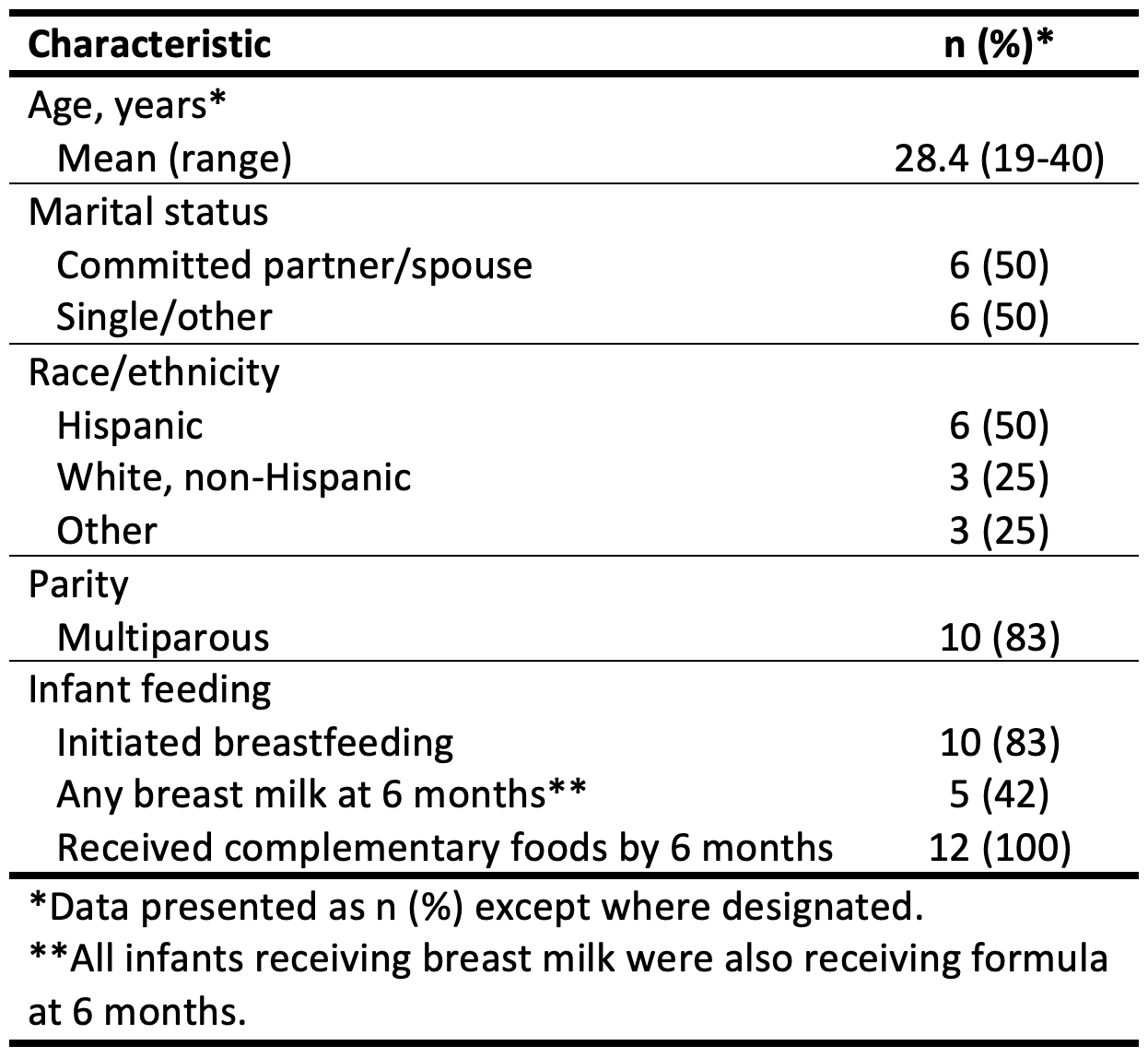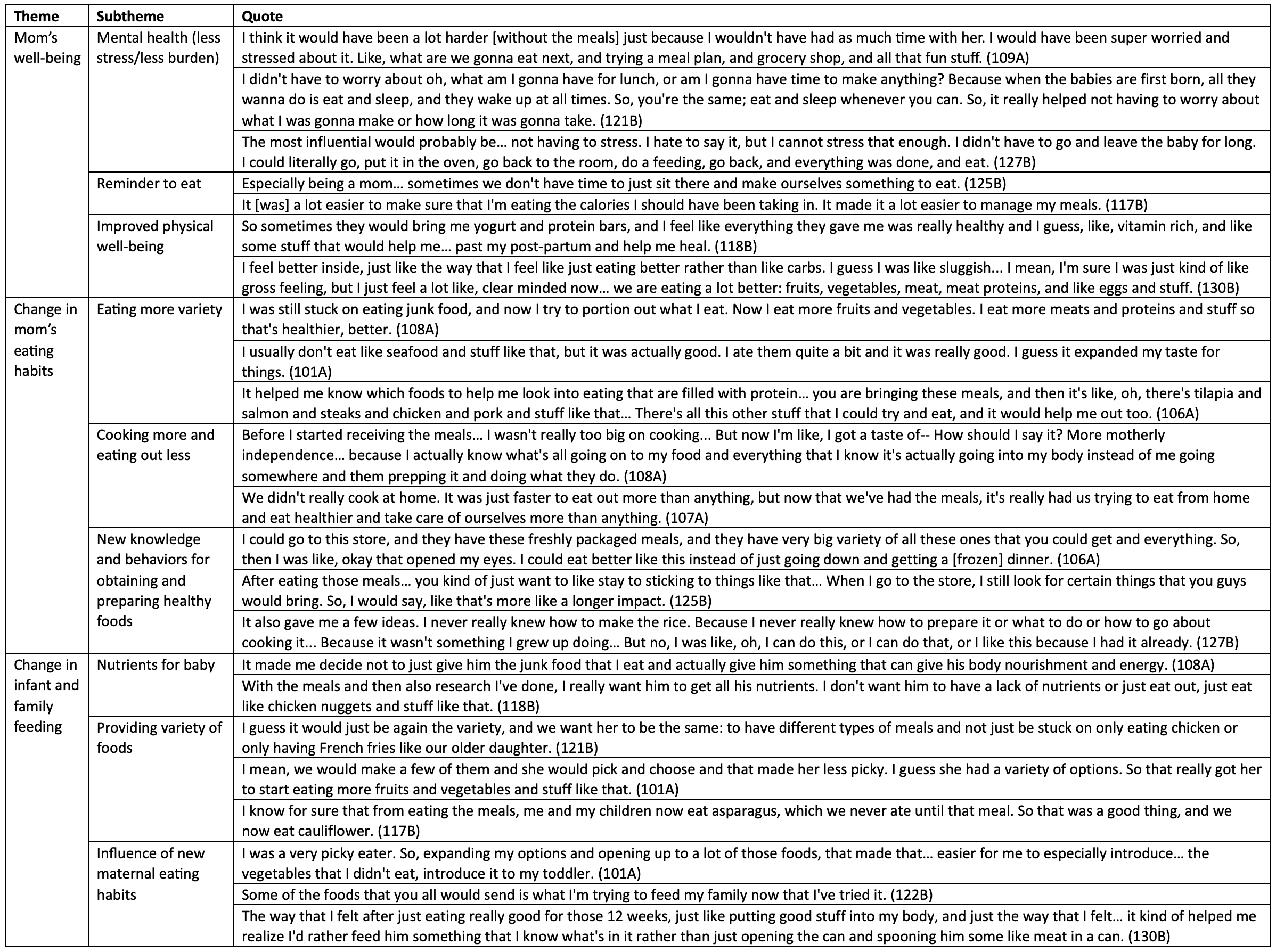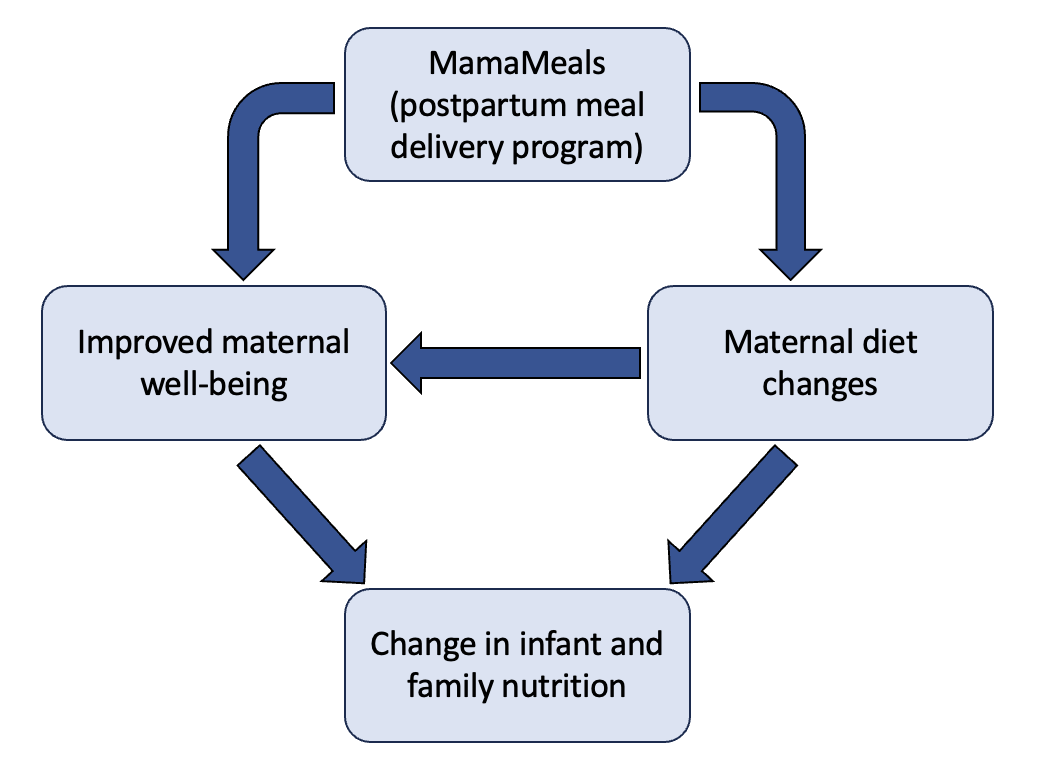Health Equity/Social Determinants of Health
Session: Health Equity/Social Determinants of Health 6
289 - Perceived impact of a maternal food insecurity intervention on infant and family nutrition: A qualitative exploration from the Maternal Well-Being Study
Sunday, May 5, 2024
3:30 PM - 6:00 PM ET
Poster Number: 289
Publication Number: 289.1761
Publication Number: 289.1761

Mallory M. Seemann (she/her/hers)
Medical Student
Texas Tech University Health Sciences Center School of Medicine
Lubbock, Texas, United States
Presenting Author(s)
Background: Families with low income experience barriers to obtaining or preparing healthy foods. In the postpartum period, this may have implications for the immediate and long-term health outcomes of mothers and their infants. Interventions that improve access to healthy foods in the postpartum period may affect behaviors and decisions that impact maternal and infant health.
Objective: The objective of this study was to explore experiences among a subset of participants in the Maternal Well-Being Study who received MamaMeals (home-delivered nutritious meals) with or without weekly support for 12 weeks postpartum to understand perceived impact on maternal and infant nutrition.
Design/Methods: We conducted semi-structured, qualitative interviews at 6-months postpartum with a subset of mothers (n=12; characteristics in Table 1) who received either a) MamaMeals or b) MamaMeals plus support for up to 12 weeks postpartum. To enroll in the pilot study, individuals had to be pregnant, be eligible for federal assistance programs, and live in Amarillo, Texas. Individuals with severe food allergies or specific dietary restrictions were excluded. Interviews were audio-recorded, transcribed, double-checked for accuracy, and deidentified. Thematic analysis was used to code each interview at least twice. Coding took place concurrently with data collection allowing for emerging themes to be examined in subsequent interviews. ATLAS.ti software was used to assist with analysis.
Results: Of the 12 mothers who were interviewed, three themes emerged regarding their perceptions of the study’s impact 3 months after the interventions ended (Table 2). 1) Mothers experienced overall improvement in their well-being. The meals relieved some stress of being a new mom and kept them nourished so that they could heal and have the energy to take care of their families. 2) Mothers reported changes in their eating habits after receiving the meals. They were introduced to new foods and gained knowledge on how to obtain and prepare healthy foods. They described incorporating these foods into their diet and cooking more at home. 3) Nutritious meals impacted mothers’ decisions about how and what to feed their infants and families. Many described providing more vegetables and healthier foods (Figure 1).
Conclusion(s): Mothers perceived that receiving the MamaMeals intervention impacted their dietary choices contributing to healthier food options for their families. Addressing postpartum food insecurity with nutritious prepared meals may have positive, longer-term impacts on maternal well-being and the types of food provided to infants and families.



